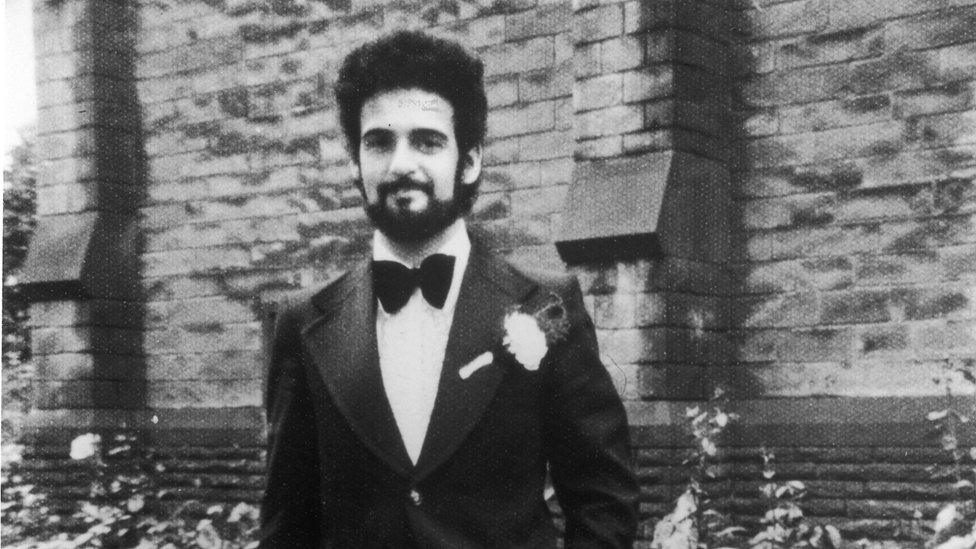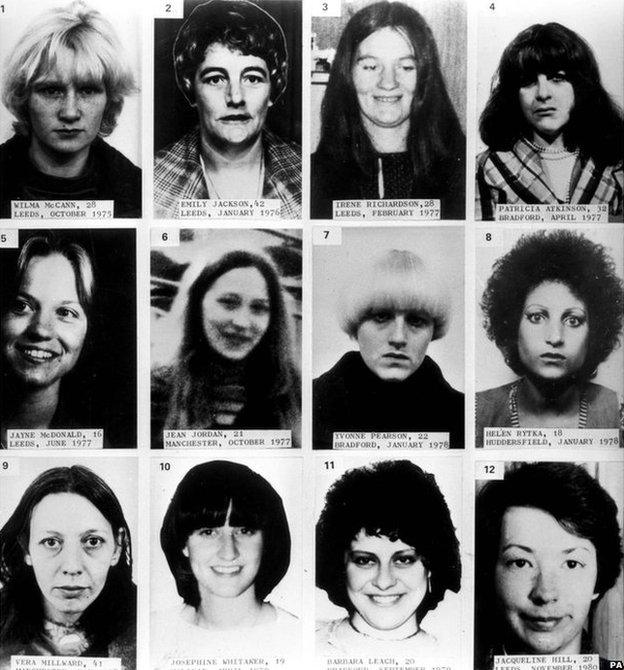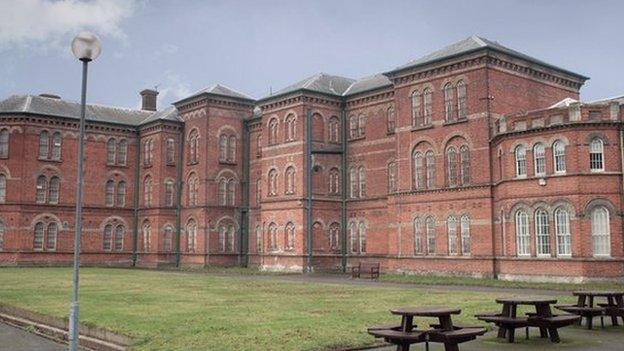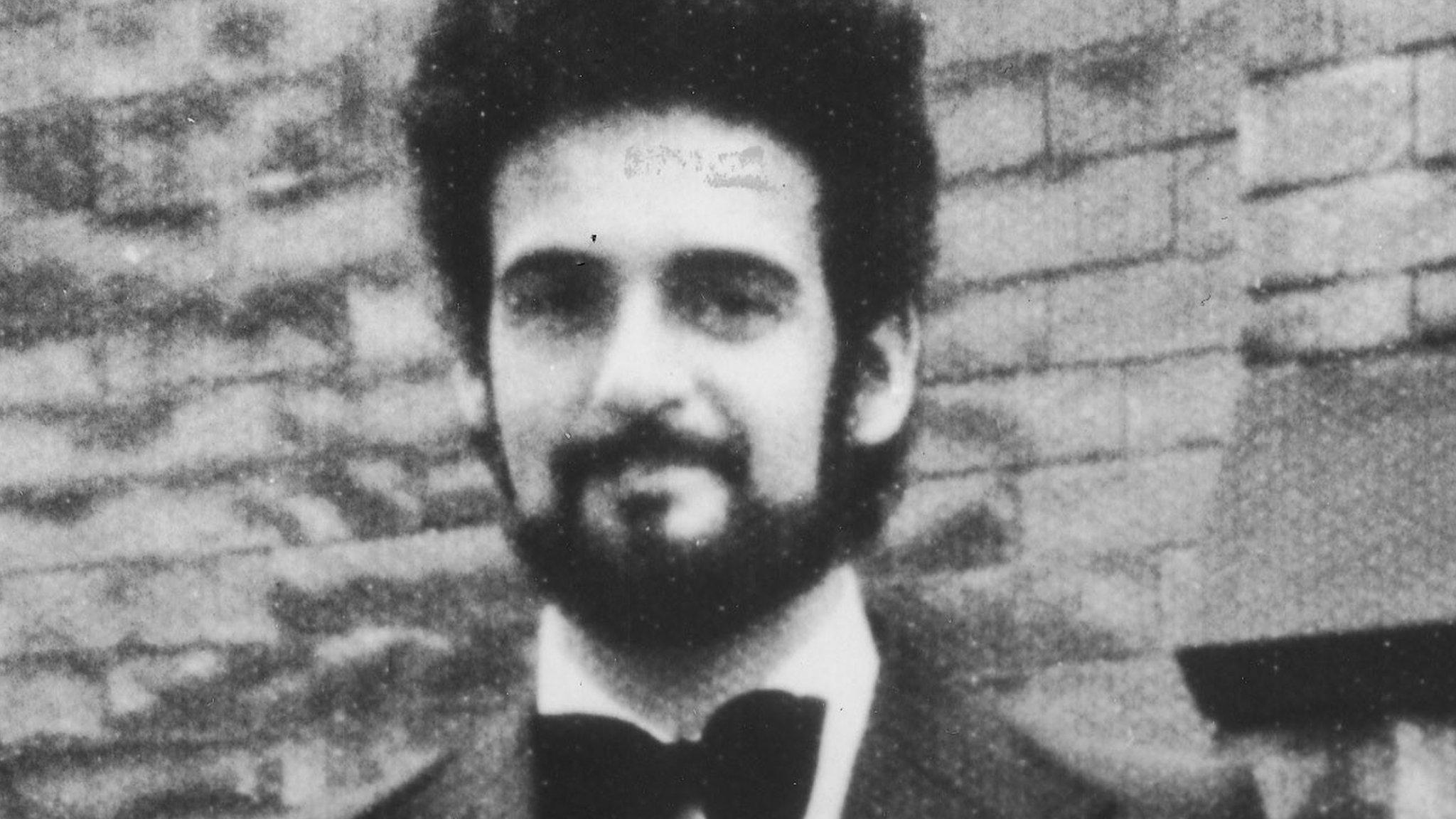Yorkshire Ripper Peter Sutcliffe 'to move back to prison'
- Published

Peter Sutcliffe was moved to Broadmoor in 1984
The Yorkshire Ripper is expected to move out of Broadmoor psychiatric hospital and into a prison after medical experts ruled him mentally fit, BBC News understands.
A health tribunal has found Peter Sutcliffe no longer needs any treatment for any mental disorder.
In 1981 he was convicted of 13 murders and seven attempted murders and given 20 life sentences.
Moving Sutcliffe would need to be approved by the Ministry of Justice.
The BBC understands that transferring Sutcliffe to a prison could save up to £250,000 a year.
Between 1975 and 1980 Sutcliffe preyed on women across Greater Manchester and Yorkshire. He mutilated them and beat them to death.
'Evil crimes'
Sutcliffe was initially sent to Parkhurst Prison on the Isle of Wight but after three years he was moved to Broadmoor in Berkshire, where he has remained since being diagnosed with paranoid schizophrenia.
A former lorry driver from Bradford who now calls himself Peter Coonan, he was caught when police found him with a prostitute in his car.
They became suspicious and found he had a fake number plate and weapons including a screwdriver and hammer in the boot.

Twelve of the 13 women Sutcliffe was convicted of murdering between 1975 and 1980 in West Yorkshire and Greater Manchester (Marguerite Walls not pictured)

Schizophrenia
Schizophrenia is a diagnosis doctors use if someone is experiencing a cluster of psychological symptoms.
These include "psychotic experiences, such as hearing voices or seeing things that don't exist (hallucinations) and having unusual beliefs that are not based on reality (delusions).
There are different subtypes of schizophrenia - paranoid schizophrenia is one example and this is when the person experiences false beliefs of being persecuted or plotted against.
Schizophrenia is a fairly common mental health condition, affecting about one in every 100 people.

Dr Stephen Shaw, a retired criminal psychiatrist from Leeds who interviewed Sutcliffe after his arrest, said he was not surprised by the tribunal ruling.
"I saw him in Armley [prison in Leeds] when he was on remand," he said.
"He was no more a schizophrenic than I was. I thought this guy was not mentally ill."
Dr Mike Berry, a clinical forensic psychologist, explained to the World at One's Shaun Ley how to treat someone like the Yorkshire Ripper
Speaking last year when it was suggested Sutcliffe may be moved, Brian Dow, director of external affairs at the charity Rethink Mental Illness, said: "There's no cure [for schizophrenia] as such.
"There's no medication that will make it go away, but people will often be able to manage their symptoms to a point where they can lead a very normal life.
"Presumably... he is sufficiently well that he no longer needs to be treated in a clinical setting.
"That's very possible as the treatments he may have had may have got him to a point where they deem him to be able to be incarcerated in a prison rather than a high-security ward."

Sutcliffe was transferred to Broadmoor in 1984
A Ministry of Justice spokesman said: "Peter Coonan will remain locked up and will never be released for his evil crimes.
"Decisions over whether prisoners are to be sent back to prison from secure hospitals are based on clinical assessments made by independent medical staff.
"The High Court ordered in 2010 that Peter Coonan should never be released. This was upheld by the Court of Appeal.
"Our thoughts are with Coonan's victims and their families."

Sutcliffe's victims
Wilma McCann, aged 28, Leeds, October 1975
Emily Jackson, aged 42, Leeds, January 1976
Irene Richardson, aged 28, Leeds, February 1977
Patricia Atkinson, aged 32, Bradford, April 1977
Jayne McDonald, aged 16, Leeds, June 1977
Jean Jordan, aged 21, Manchester, October 1977
Yvonne Pearson, aged 22, Bradford, January 1978
Helen Rytka, aged 18, Huddersfield, January 1978
Vera Millward, aged 41, Manchester, May 1978
Josephine Whittaker, aged 19, Halifax, May 1979
Barbara Leach, aged 20, Bradford, September 1979
Marguerite Walls, aged 47, Leeds, August 1980
Jacqueline Hill, aged 20, Leeds, November 1980

- Published1 December 2015

- Published16 July 2010